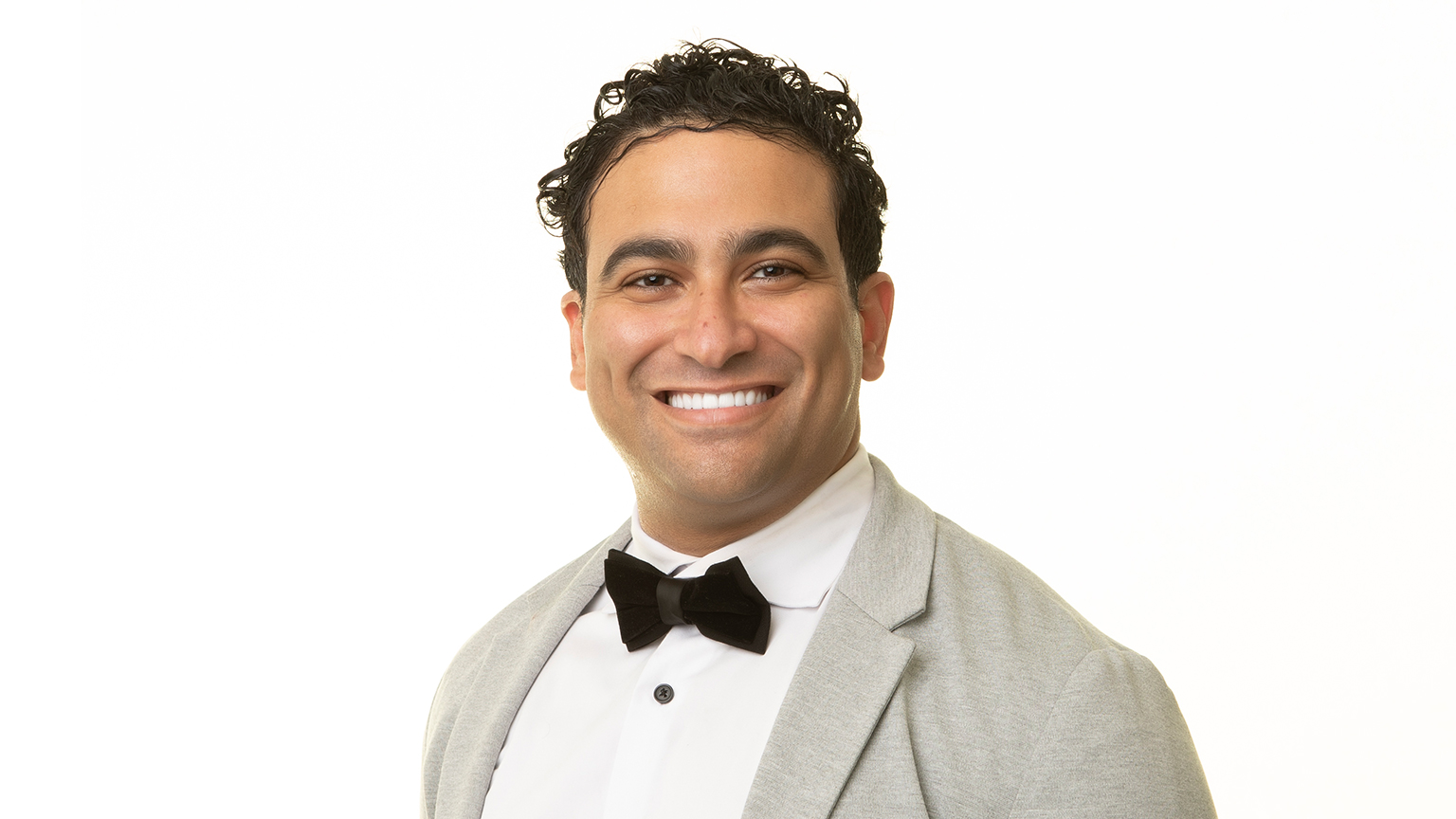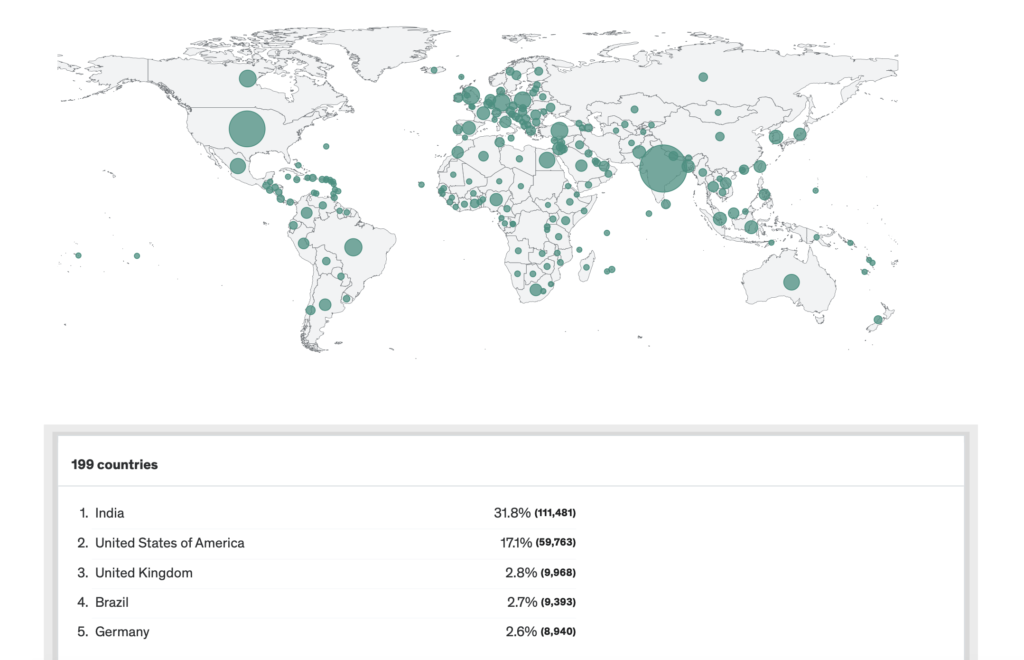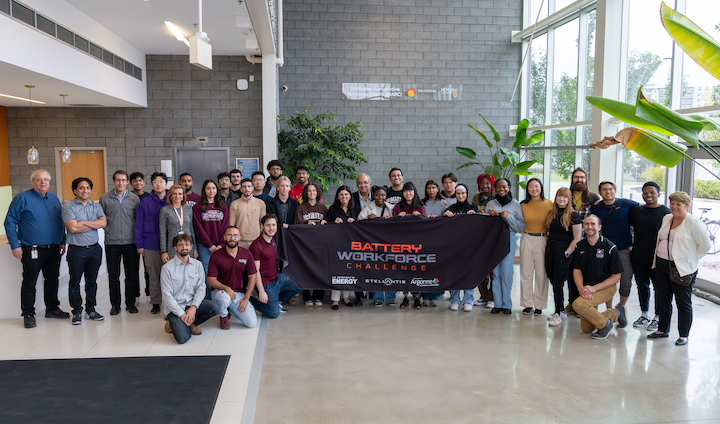
The first thing you’ll notice about assistant professor Ryan Ahmed is how his smile reaches his eyes when he talks about his greatest passion: teaching.
For the past eight years, Ahmed has been inspiring the minds of McMaster Engineering students and finding ways to express his love of science, technology, engineering and mathematics (STEM) and learning through a variety of channels.
An avid leaner himself, Ahmed came to McMaster in 2009 as an international student from Cairo, Egypt to pursue a Master of Applied Science degree with a focus on artificial intelligence (AI) and fault detection.
He went on to receive a PhD in electric vehicles and battery management systems, an MBA in Finance from the DeGroote School of Business and a program management certification from Stanford University
Ahmed then gained extensive industry experience in AI and electrified autonomous vehicles at several tech companies such as General Motors, Samsung and Stellantis in Canada and the U.S. before joining McMaster as an assistant professor in the Department of Mechanical Engineering.
Ahmed is not your average engineering educator. His unique methods of teaching, creating educational content, blending new technology in the classroom and mentorship have left an indelible mark on his students both near and far.
Teaching outside the box
In 2018, Ahmed set out to connect with students from all over the globe. This goal brought him to Udemy, an online technology education company that offers specialized courses to learners, virtually. To date, Ahmed has taught more than 45 online courses to approximately 370,000 students in more than 160 countries in both English and Arabic.

“To be able to connect with hundreds of thousands of learners is such a unique experience,” says Ahmed. “It’s incredibly valuable for me, to push me to continue to develop as an informed educator who is constantly striving to do better.”
To expand his global reach, Ahmed also created his own YouTube channel later that year. With the goal of making STEM more accessible and affordable, he produces engaging videos that cover topics ranging from artificial intelligence and machine learning to deep learning and autonomous driving.
“Learning doesn’t have to be confined to a classroom,” Ahmed says. “No matter where you are or who you are, everyone should have access to quality educational material that is informational and entertaining. That’s what I strive to achieve in my YouTube videos.”
In six years since launching his channel, Ahmed has amassed more than 250,000 subscribers. His 200 videos have a combined count of nearly 2.5 million views.
Reimagining the role of AI in the classroom
AI tools like ChatGPT have proven to be a controversial topic in academic settings. For Ahmed, though, he feels strongly that professors should embrace its rising popularity rather than reject it.
“Blocking artificial intelligence in academic settings completely is not the right approach, in my opinion,” says Ahmed. “I teach courses on how to use ChatGPT and integrate it into curriculum. The technology is incredibly powerful, and when used the in the correct way it can be a meaningful learning tool for everyone.”
As an early adopter of generative AI and machine learning, Ahmed’s expertise in the field led him to encourage his students to leverage it to accelerate their learning in an ethical way. He also leverages the technology as an educator, as he credits AI’s ability to create a tailored teaching approach that he believes has the potential to revolutionize the classroom experience for students.
Ahmed believes AI can be used to tailor teaching methods based on individual student data, improving with more information to meet each student’s unique needs.
“By integrating the latest technology into the classroom, I am encouraging my students to be dynamic and responsive in a world where technology is rapidly developing and changing. In engineering especially, you have to be ready for the next big breakthrough in tech and assess how to use it to its full efficiency while still relying on your own knowledge. Innovation and education are the McMaster way; the two go hand in hand.
A culture of mentorship at McMaster
Ahmed’s work has deep roots in the McMaster Engineering community, and he credits the lessons of his professors for paving the way to be a mentor himself.
In particular, two professors from the McMaster Automotive Resource Centre (MARC) – Dr. Saeid Habibi, Professor and Director of the Center for Mechatronics and Hybrid Technologies (CMHT) and Dr. Ali Emadi, Canada Excellence Research Chair Laureate – taught Ahmed what it means to be a true leader in the field.
“Drs. Habibi and Emadi have been and continue to be my mentors throughout my career,” says Ahmed. “They have supported and guided me through a lot of big decisions, like choosing areas of research. I am very grateful to them both for all that they’ve done for me, and I hope to continue the cycle of mentorship to my own students”.
Given the glowing reviews he’s received from his students, it’s safe to say Ahmed is living up to this pursuit.
“Dr. Ahmed has inspired me since day one,” says M.A.Sc. student Mohanad Ismail. “One thing I appreciate about his style of leading is how he makes use of and takes into consideration our backgrounds and learning preferences.”
Ph.D. student John Guirguis, who Ahmed currently supervises, agrees. “Dr. Ahmed’s teaching style helped me build a solid understanding of how batteries work and how they are modeled,” he says. “As a professor, he has years of research and industrial experience in his field, and he is able to seamlessly pass this experience to the students. He always uses real-world models, codes and examples to help interpret complicated concepts.”
Ahmed’s influence goes well beyond the walls of the classroom.
Ahmed currently serves as a faculty co-lead for McMaster’s Battery Workforce Challenge team, a three-year student competition that began in October 2023. In this role, Ahmed guides the team of undergraduate and graduate students through the process of designing, building, testing and integrating an advanced electric vehicle battery pack into a Stellantis vehicle.

“For me, teaching isn’t a job; it is my passion and purpose in life. At every level, from my undergraduate, graduate and virtual students, whether in the classroom, on a Zoom call or in the garage getting hands-on learning experience, I am incredibly proud to play a role in their development as academics and engineers,” says Ahmed. “Getting to be a teacher…it’s the opportunity of a lifetime.”
